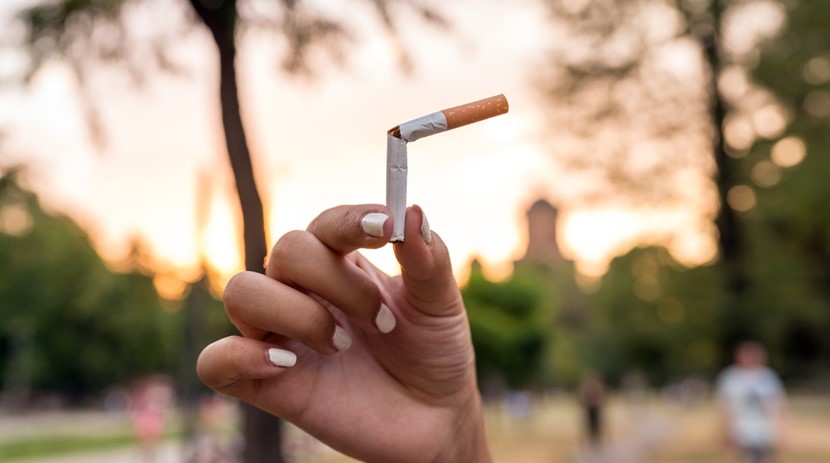Smoking, Alcohol and Drugs

Smoking
There is a lot of evidence to suggest smoking is harmful to the unborn baby before, during and after pregnancy. The chemicals in a cigarette will transfer from your circulation to your baby's blood. It also reduces the amount of oxygen and nourishment your baby receives. It is a major cause of avoidable problems with your baby.
If you are planning to get pregnant it is best to stop smoking at least one month before you intend to get pregnant. If you can not stop smoking then try to cut your smoking down. There are many helpful quit groups you could join for help and support. Checkout the quitline website http://www.quit.co.nz/ or call quitline on 0800 778 778.
Passive smoking is just as harmful; if your partner smokes you may want to discuss with him the risks of smoking and work on supporting him giving up smoking.
Associated Risks
🚫 Placental abruption.
🚫 Premature labour.
🚫 Intrauterine growth retardation.
🚫 Low birth weight, which increases the risk of a premature birth.
🚫 Higher risk of fetal abnormality.
🚫 Miscarriage or stillbirth.
🚫 Smoking can contribute to a low sperm count.
🚫 Cot death.
🚫 High blood pressure (mothers).
🚫 Trouble breastfeeding.
Alcohol
Like smoking- alcohol can cross the placenta and get into your baby's bloodstream. It also circulates in the amniotic fluid. The effects of alcohol on an unborn child will vary from mother to mother - but any risk is worth avoiding. Binge drinking has the worst effect.
It is a good idea to give up alcohol completely when trying to get pregnant, in early stages of pregnancy it can take a week or so before realising you are pregnant. The first twelve weeks of pregnancy are the most important for your baby's development drinking alcohol during this time puts your baby risk.
Associated Risks
🚫 The main risk is 'fetal alcohol syndrome', where there is mental retardation, retarded growth, and damage to the brain and nervous system.
🚫 Because there is no certain safe 'lower limit' of alcohol consumed during pregnancy, it's better to just abstain from drinking at all.
🚫 If you are a partner of a pregnant women, do her a favour and quit drinking alcohol as well, for support.
Drugs
Recreational drugs such as Marijuana, Speed and Ecstasy are a definite threat to your baby and should be stopped long before you even think about pregnancy. Drugs such as cocaine, heroin or amphetamines put the unborn baby at great risk. Babies can be born addicted to cocaine or heroin and suffer acute withdrawals after birth. They need expert care if they are to survive.
Drugs increase the chances of miscarriages, stillbirths and premature births.
Cocaine, heroin and morphine can damage chromosomes in the ovum and sperm, and can lead to abnormalities.
Prescribed Medicines
It's best to check with your doctor as to whether it's safe or not to continue with any prescription medicines. Any medicine you take will also be administered to, and affect your baby because your baby is very much a part of you. Anti-depressants such as Paxil, and even simple cough mixtures can be harmful to your baby, so be sure to visit your doctor before taking medicines. If they are harmful, or haven't had thorough testing, there will most likely be safer options available. If you need a medicine which is questionable, it may be a case of weighing up the pros and cons, in consultation with your doctor. Remember that just because a medicine is available from a dairy or supermarket, does not mean it's safe for your baby, or pregnancy.
Even hay fever medicines, cough mixtures or antacids come with risks when you are pregnant. Again you should consult your doctor.
CAFFEINE
Caffeine, found in drinks such as cola, tea and coffee is not harmful in moderation. There is no evidence that caffeine causes birth defects. However, if you consume it in large enough amounts, it can put you at risk for a low-birth-weight baby or a miscarriage. As such, it is safer to reduce your caffeine intake or cut it out completely.
Caffeine can also stop you sleeping well and can interrupt your ability to absorb nutrients. In addition caffeine consumption while breast feeding can cause your baby to be irritable and cry.
So how much can I have then?
Most studies show that consuming over 300 milligrams of caffeine a day may affect a fetus. The average cup of coffee has between 100 and 150 milligrams of caffeine, so drinking an average-sized cup of coffee per day (or the equivalent caffeine content in other foods or drinks) should be safe during pregnancy. Some other foods containing caffeine include tea, sodas, cocoa, and chocolate. One of the common stories out there is that caffeine causes birth defects, but no scientific study has proven this.

